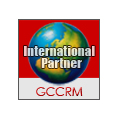Steve Jobs wants owners of rights to digital assets to give it up.
He may be right -- for him. And he may be right for the industry, provided Apple's iTunes site remains such a hit among consumers. After all, peer-to-peer networks sharing digital media files provide zero royalties to the IP owners. With Jobs' vision, it may well be that enough people will flock to iTunes (or other legitimate sites offering digital media) and to "open" iPods to unleash a pile of cash for everyone.
The observation among many music lovers is that they want to reward musicians -- not necessarily labels or producers. In this scenario, Jobs' view wins.
Others just want to get away with sharing files for free as though that makes them cool to their friends. Not sure how Jobs' view helps here. Without DRM, people will still have to pay for legit copies of music -- if you copy the files, you're still breaking the law. Some people just don't care about that.
On the other hand, what would happen if what we shared became as important as the music? Suppose we had a really simple, robust way to create and share playlists? To find "similar enough" playlists to help us identify new music we'd probably like? And suppose Apple did all this? Would people be willing to pay for music managed this way?
What I'm getting at is the value added by the network of music lovers. There's a power law advantage to hanging out with lots of people online. If they're like you, you can enlist them in a cause. If they're different enough from you, you can learn from them (this is a key part of Granovetter's argument about weak ties, see more at Wikipedia here). The more meshed your network, the shorter the time is for someone to get value from your network.
So, maybe the thing that really matters here for owners of digital media is to create a new way of adding value to their stockpile of media assets, not by controlling copying, but by encouraging sharing via a site that lets everyone make some money off the method for describing, collecting and sharing the media.
PS On Thursday, a study that surveyed 2600 Americans concluded that most people won't shoplift a DVD, but most people also didn't consider downloading copyrighted moved a "very serious offense". Click here for more information on the study as reported on ZDNet.
Monday, February 12, 2007
Saturday, February 10, 2007
US Unilateralism -- Beyond Putin's Comments

Russian President Vladimir Putin recently said that the United States' execution of foreign policy is a major motivation behind smaller countries pursuing nuclear ambitions. Some in the US called the speech provocative and confontational. According to the BBC, 'Mr Putin's spokesman Dimitry Peskov said the speech was "not about confrontation, it's an invitation to think. Until we get rid of unilateralism in international affairs, until we exclude the possibility of imposing one country's views on others, we will not have stability,' he said.
No matter what you think of US foreign policy and Mr. Putin, there's a business lesson or two here if you look for parallels between policy unilateralism and a business strategy that attempts to "impose" a value proposition on global markets. Wal-Mart just got drummed out of Germany. In my view, the two biggest reasons were:
1. Wal-Mart didn't appreciate the resistance it would receive from its competitors, who already form a very tight economic ecosystem there. Once any ecosystem evolves to the point that everyone's got a defensible niche, new entrants just have a terrible time finding their place.
2. Wal-Mart didn't appreciate that its branded format for customer experiences was, in the eyes of Germans, silly. Germans don't want to be greeted at the door with a friendly face. They want to shop. It's not that Germans don't want a relationship with businesses, either. It's the style, the approach, the -- well, face it, the American way of being glibly welcoming.
There's an opportunity here for business. As you go into international markets, focus like a laser on how these markets perceive your contribution to THEIR economic and cultural ecosystems. You may find that the thing that's bankable in some markets has zero -- or even negative -- value in others.
Then, deconstruct what you offer and repackage it based on what you learn. New products, new experiences -- new profits.
INSEAD's Yves Doz talks a lot about this. Email me if you've run into this challenge, and let me know how you approached it.
As for whether this business observation has a parallel to global politics, let me go out on a limb to say that the US should in fact be really aware of how its actions affect its allies and enemies. It's mainly through this understanding -- and concomitant diplomacy -- that we can have a credible brand in the world. I'm not suggesting the US is up to no good, as Putin implies. We do a lot of good, and can do more. But our brand is not just about whether we're good or bad. That's way too simplistic, in a world of interlocking interests in the areas of global warming, energy sourcing, labor arbitrage, human rights, poverty and regional conflicts. It's hard work getting it right.
Note on the picture above: This statue is one of many lovely details of the legendary Metropol Hotel in Moscow. I enjoyed my stay there recently and recommend it.
Subscribe to:
Posts (Atom)


